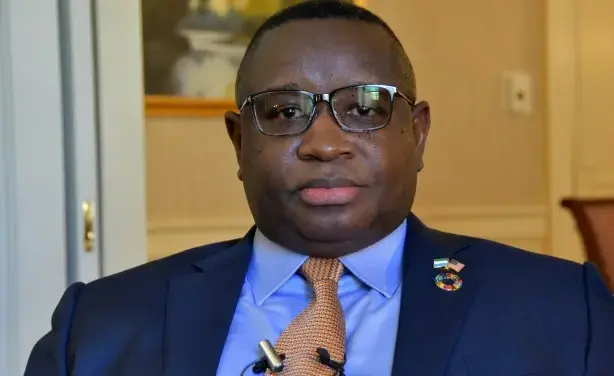Former Vice President of Nigeria, Atiku Abubakar will for the sixth time contest to be Nigeria’s president as he officially declared his intention to run for the People’s Democratic Party (PDP) presidential ticket ahead of the 2023 general elections.
Atiku’s declaration comes a week after he solicited the support of members of the Board of Trustees of the PDP last week for his ambition to become to grab the presidential ticket of Nigeria’s main position and hopefully become Nigeria’s next president.
The official declaration was held on Wednesday in Abuja, Nigeria’s seat of power at the International Conference Centre.
The presidential hopeful stressed the state of insecurity in Nigeria and vowed that his administration would not tolerate insecurity. “The most fundamental right of every Nigerian is the right to life. But the APC has failed to protect the life of her citizens… under my Presidency I will not tolerate insecurity.
He also emphasized other critical aspects of Nigeria that he believes the ruling All Progressive Congress (APC) hasn’t met up to expectations.
“They said we should go back to farms. How can Nigerians return to the farms when they have not secured the farms?
“When the APC came in 2015, they met a debt profile of N12tn. But now we have more than N32tn in debt. Under my watch, I will reduce borrowing.”
“Nigeria is in dire need of visionary leadership. Presently Nigeria is a sinking ship that must be urgently rescued. That is why I am announcing my candidacy for the President
Since his entry into politics in 1993, Atiku Abubakar has unsuccessfully contested to be Nigeria’s president five times. In 1993, 2007, 2011, 2015, and 2019. Today’s announcement put him in the ring for the sixth.
In 1993, he contested the Social Democratic Party presidential primaries losing to Moshood Abiola and Baba Gana Kingibe. He was a presidential candidate of the Action Congress in the 2007 presidential election coming in third to Umaru Yar’Adua of the PDP and Muhammadu Buhari of the ANPP.
He contested the presidential primaries of the Peoples Democratic Party during the 2011 presidential election losing out to incumbent President Goodluck Jonathan. In 2014, he joined the All Progressives Congress ahead of the 2015 presidential election and contested the presidential primaries losing to Muhammadu Buhari. In 2017, he returned to the Peoples Democratic Party and was the party presidential candidate during the 2019 presidential election, again losing to incumbent President Muhammadu Buhari.
It remains to be seen if Atiku will get lucky in his sixth push for Nigeria’s top job. His first hurdle will be to grab his party, PDP’s presidential ticket amidst competition from other candidates notably among which are former Nigeria’s Senate President, Bukola Saraki, and Governor Aminu Tambuwal of Sokoto state who are both from the same region as him.
There are possibly other contending voices within PDP from the other parts of the country who seem interested in grabbing the presidential ticket also, but none has declared an interest. One of them is Atiku’s running mates in the last presidential elections, Mr. Peter Obi who has hinted that he would contest for Nigeria’s top job if the PDP zones the position in his region.
After the internal party hurdle will be the actual height to scale, to defeat the party of an incumbent president is not a common feat in African politics. But then, nothing is cast in stone in Nigeria, not even being a Northern candidate contesting against a Southern candidate as some have argued. Previous presidential elections in Nigeria proved that.
Aside from the North/South divide of Nigeria’s presidential election race, Atiku can also draw motivation from the fact that current President Muhammadu Buhari defeated a sitting president Goodluck Jonathan in 2015. Hence, there is all to fight for. I wish him luck.




































